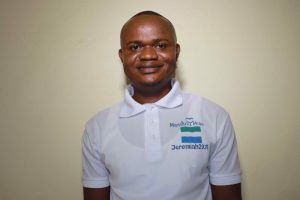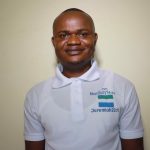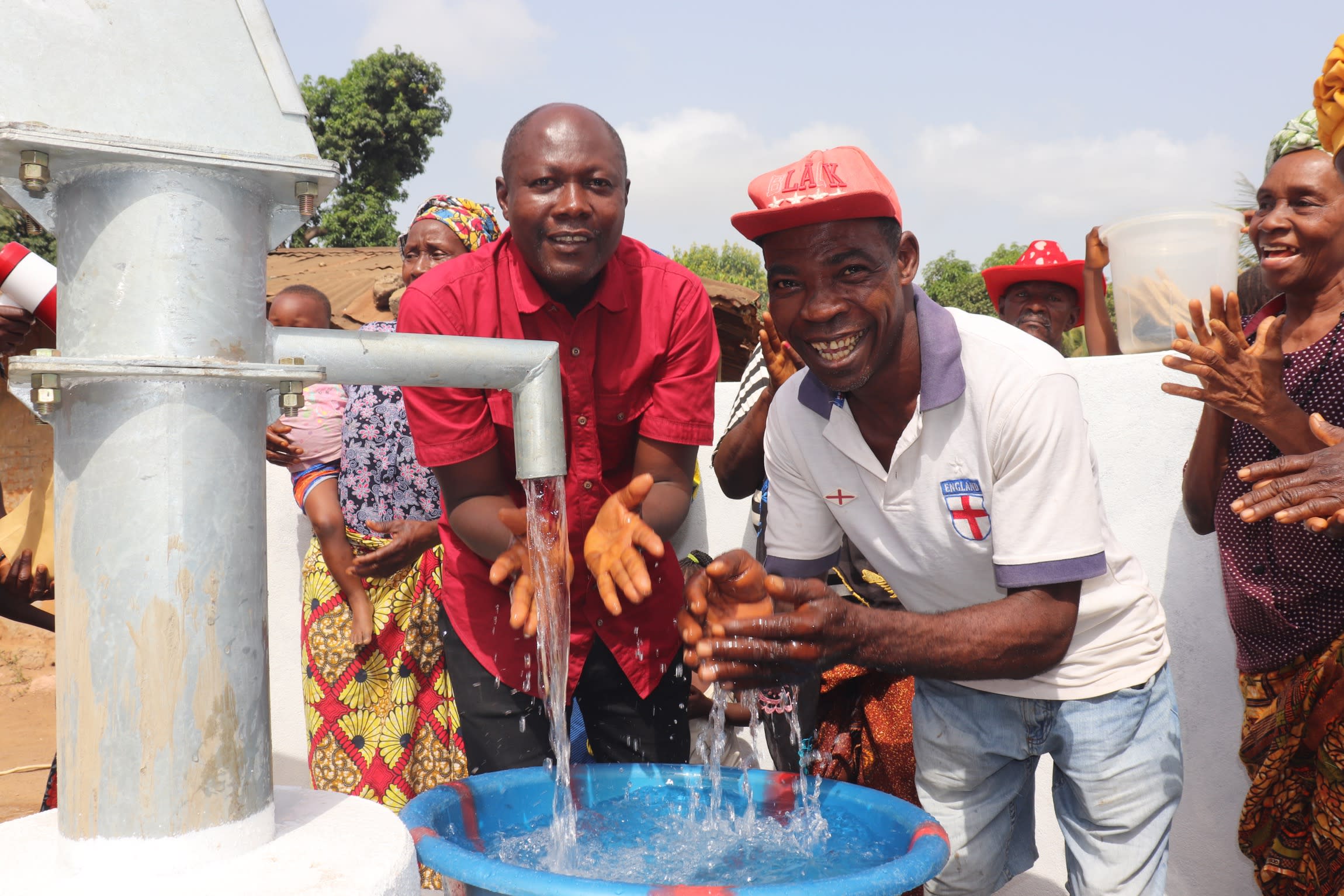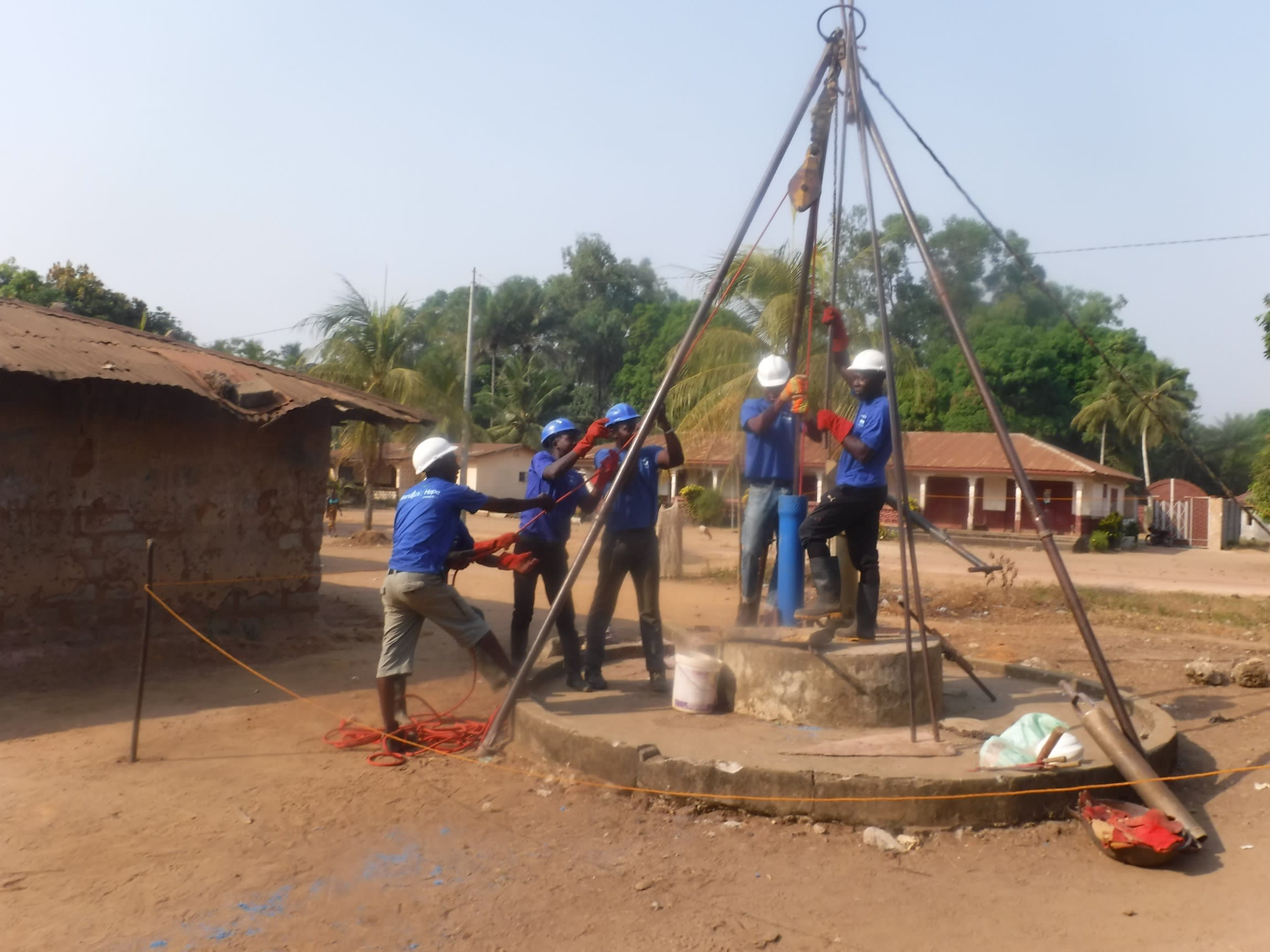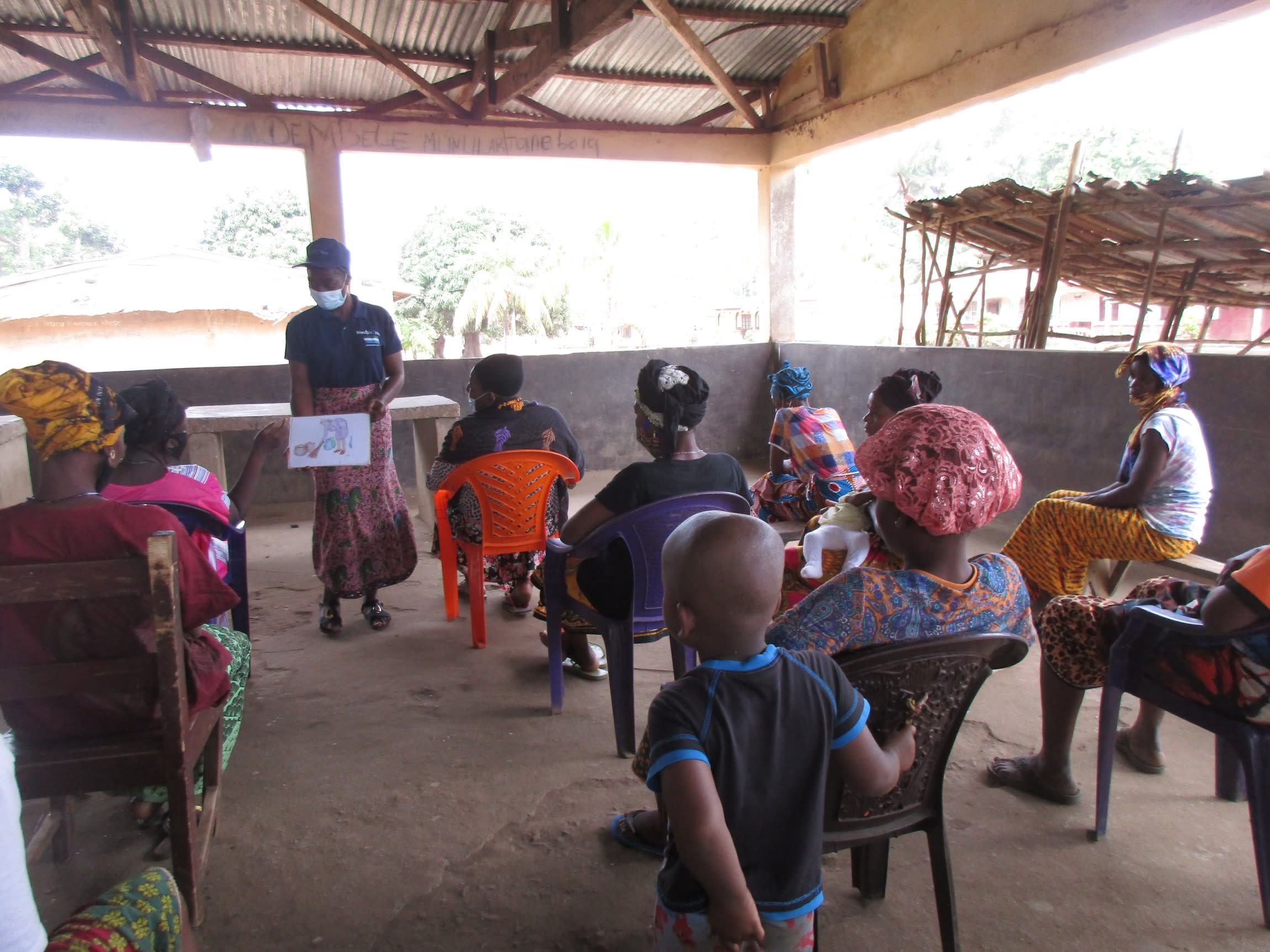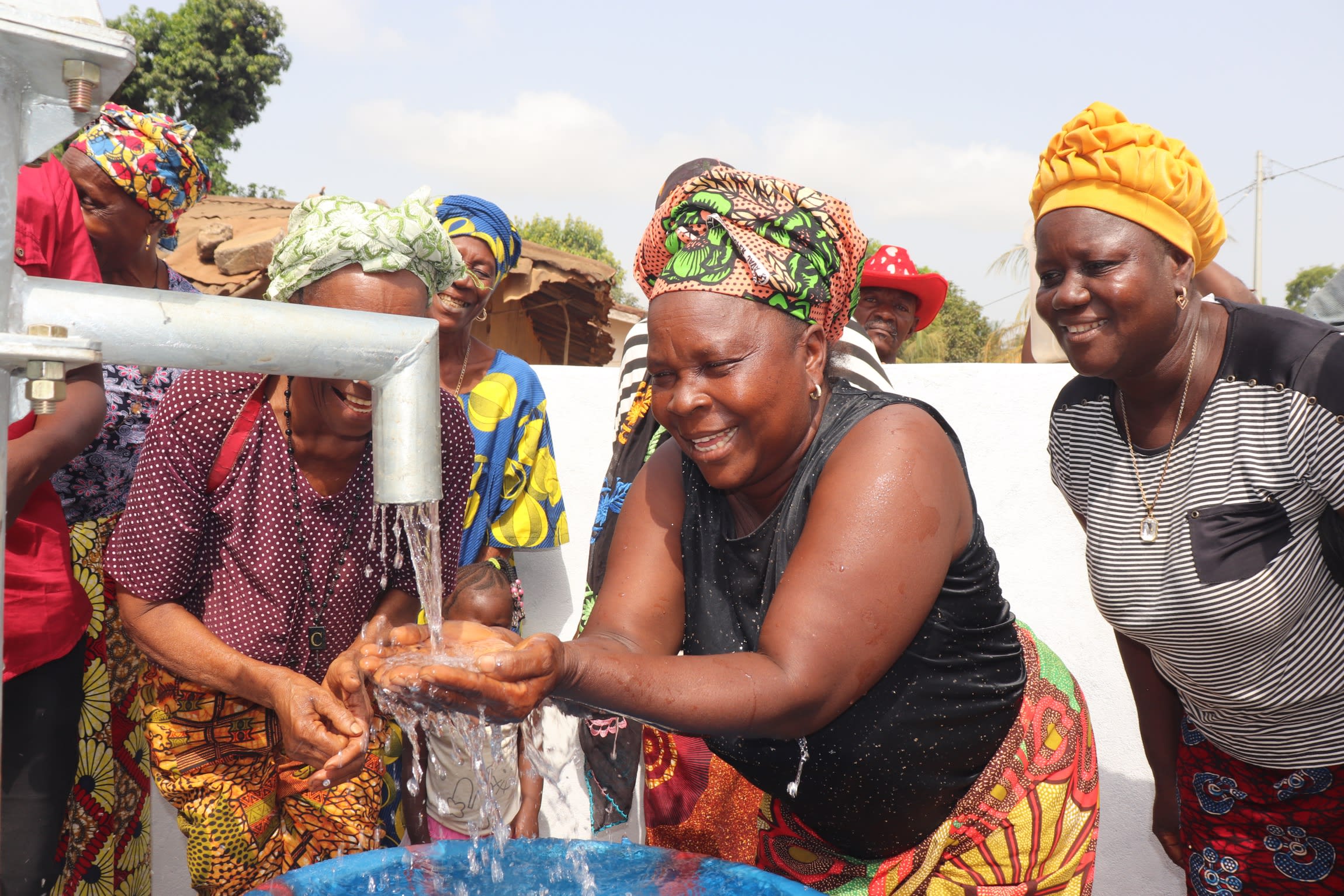Anyone in business knows that time is money. This is why the water crisis is so devastating to the traders at Petifu Junction.
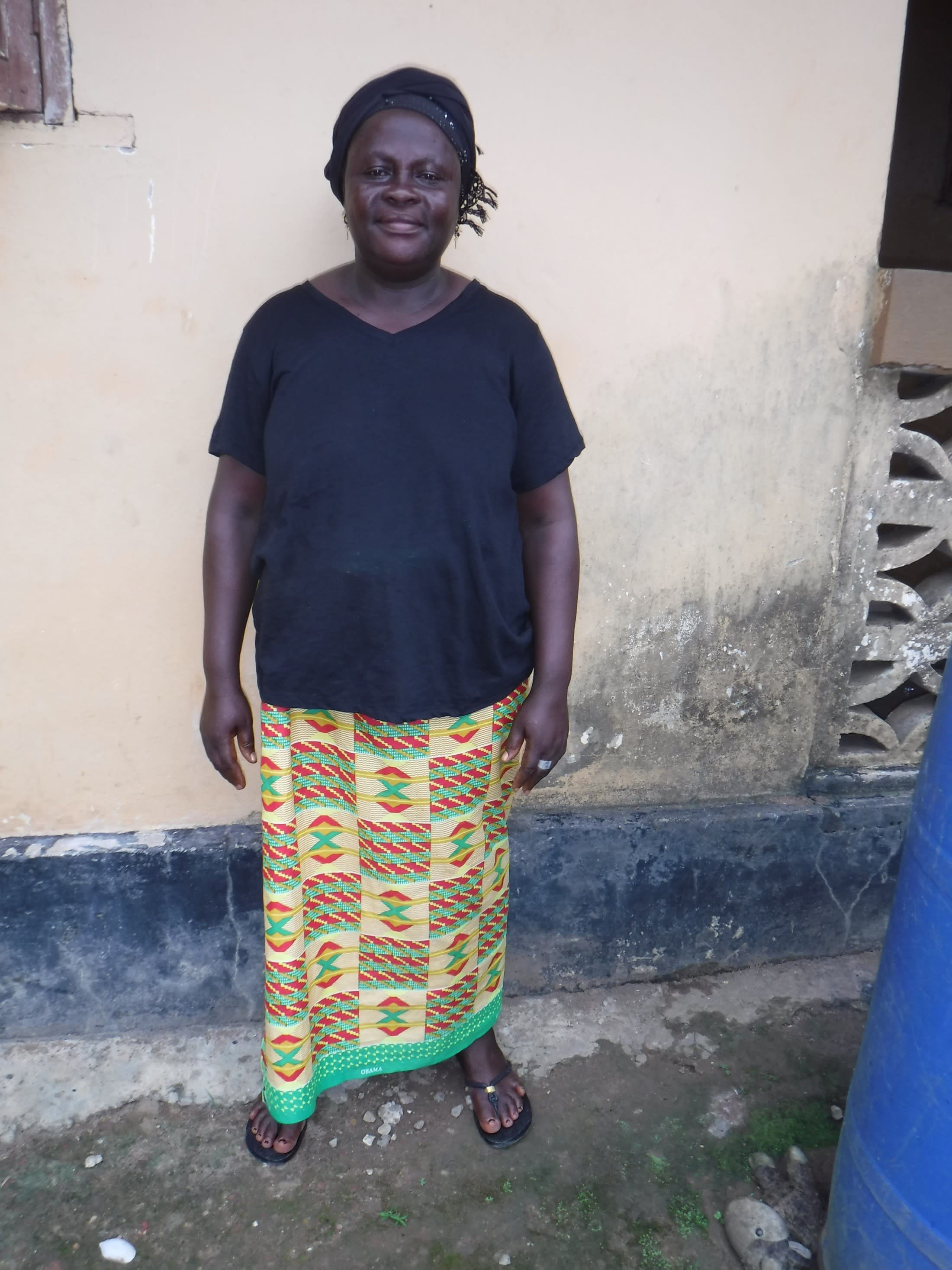
"Since the market well became nonfunctional, it is exceedingly difficult to access safe water in this community and the market," said Yasinnah Sesay, 62, a local trader shown above. "Most of the wells in the community are not sustainable. They cannot supply water for us in the community and marketplace throughout the year. They get dry during the dry season. This has been a great challenge for my business at the market and at home."
Both wells in this community that serve the 230 community members run out of water during the dry season (and break down mechanically year-round). By the time the food vendors are able to cook or the agricultural traders are able to wash their product, they've already lost out on a lot of business. Yasinnah told us that she often returns home with the food she was hoping to sell.
"I could not prepare food on time because my children had to fetch water after school in the afternoon, but the well is only opened early in the evening," Yasinnah continued. "I have to wait until they fetch water before I start cooking. Some of the agricultural products that I sell mostly get perished because there is not enough water to preserve them. This is a loss on my business."
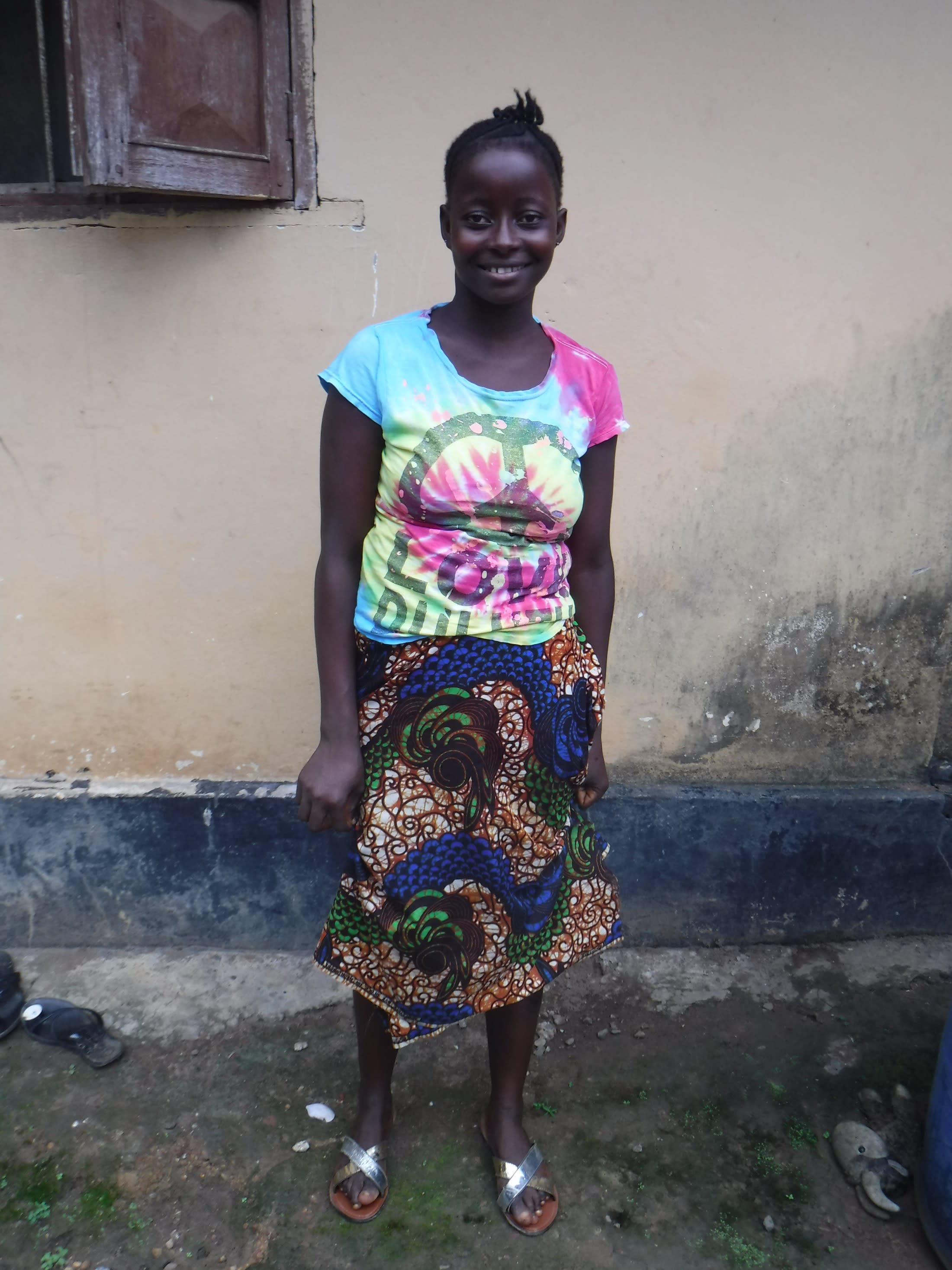
"Accessing water in this community is a difficult task," said 16-year-old Mabinty in the photo above. "I have to wake up early in the morning to fetch water before going to school. The well is mostly overcrowded."
When both wells are inaccessible, the community members' only option is the swamp. "Sometimes it is difficult to access water to launder my school uniforms and other clothes, so I have to go out to the community at the far swamp area to launder when it is difficult to access water at the community well," Mabinty continued.
The water crisis also affects Mabinty's schoolwork as well as her daily schedule. She is out late into the night waiting in lines at the community's wells, which prevents her from studying.
"It has been a big struggle for me when I am in class," Mabinty explained. "I easily fall asleep while a lesson is in progress. I have been punished a lot by my teacher, but it is difficult for me to stop sleeping in class because I always have to sleep late at night and wake up early in the morning to fetch water and do other domestic works. I am not happy with this condition because it is difficult for me."
A reliable source of water will do so much to help the people of this community in school, in business, and at home.
Here’s what we’re going to do about it:
Well Rehabilitation
The well marked for this overhaul is dry for a few months every year and needs major work to supply adequate, clean water to the community year round. The pump will be removed, and a hand auger will be lowered inside and powered by a drill team. This hand auger will allow the team to drill several meters deeper to hit a sufficient water column that will ensure the well supplies water throughout all seasons.
As the team drills, casing will be installed, transforming the bottom of this hand-dug well into a borehole. PVC piping will connect this lower system directly to the pump, a construction that we know will also improve the quality of water.
Once this plan is implemented, everyone within the community will have access to safe drinking water in both quality and quantity, even through the dry months.
Hygiene and Sanitation Training
There will be hygiene and sanitation training sessions offered for three days in a row.
After our visit, the hygiene and sanitation trainer decided it would be best to teach community members how to build a tippy tap (a hand-washing station built with a jerrycan, string, and sticks). They will use these tippy taps for handwashing demonstrations, and will also teach about other tools like dish racks and the importance of properly penning in animals.
These trainings will also strengthen the water user committee that manages and maintains this well. They enforce proper behavior and report to us whenever they need our help solving a serious problem, like a pump breakdown.

 Borehole Well and Hand Pump
Borehole Well and Hand Pump









